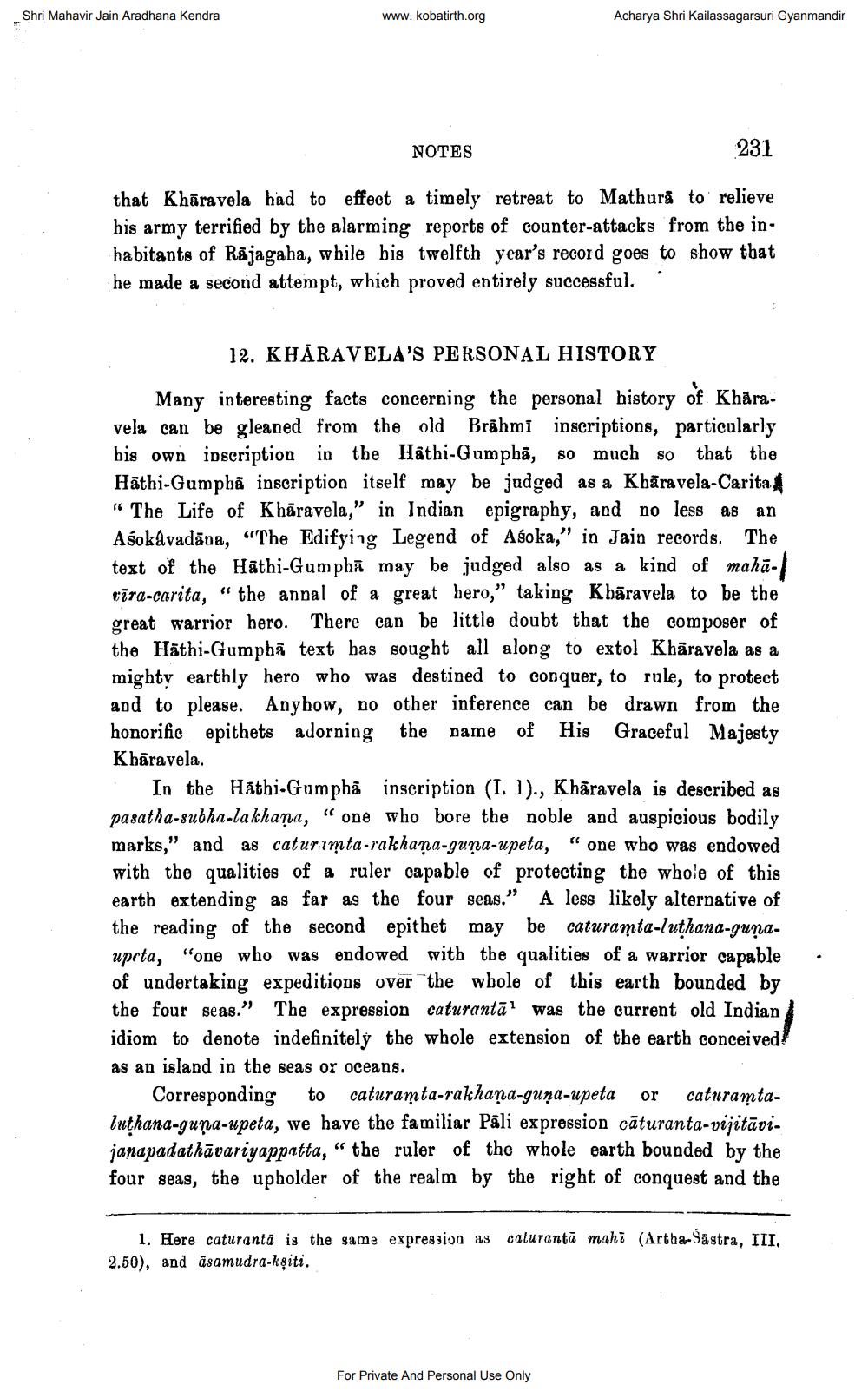________________
Shri Mahavir Jain Aradhana Kendra
www.kobatirth.org
Acharya Shri Kailassagarsuri Gyanmandir
NOTES
231
that Khāravela had to effect a timely retreat to Mathura to relieve his army terrified by the alarming reports of counter-attacks from the inhabitants of Rājagaba, while his twelfth year's record goes to show that he made a second attempt, which proved entirely successful.
12. KHĀRAVELA'S PERSONAL HISTORY
Many interesting facts concerning the personal history of Khāravela can be gleaned from the old Brāhmi inscriptions, particularly his own inscription in the Hathi-Gumphā, so much so that the Hāthi-Gumphā inscription itself may be judged as a Khāravela-Carita “ The Life of Khāravela," in Indian epigraphy, and no less as an Asokávadāna, “The Edifying Legend of Asoka," in Jain records. The text of the Hathi-Gumphā may be judged also as a kind of mahā. tīra-carita, “ the annal of a great hero," taking Khāravela to be the great warrior bero. There can be little doubt that the composer of the Hāthi-Gumphā text has sought all along to extol Khāravela as a mighty earthly hero who was destined to conquer, to rule, to protect and to please. Anyhow, no other inference can be drawn from the honorific epithets adorning the name of His Graceful Majesty Kbāravela.
In the Hathi-Gumphá inscription (I. 1)., Khāravela is described as pasatha-subha-lakhaņa, “one who bore the noble and auspicious bodily marks," and as caturumta-rakhaņa-guna-upeta, “one who was endowed with the qualities of a ruler capable of protecting the whole of this earth extending as far as the four seas." A less likely alternative of the reading of the second epithet may be caturamta-luthana-gunauprta, "one who was endowed with the qualities of a warrior capable of undertaking expeditions over the wbole of this earth bounded by the four seas." The expression caturantā' was the current old Indian idiom to denote indefinitely the whole extension of the earth conceived as an island in the seas or oceans.
Corresponding to caturamta-rakhana-guna-upeta or caturamtaluthana-guna-upeta, we have the familiar Pāli expression cāturanta-vijitāvi. janapadathāvariyappatta, “ the ruler of the whole earth bounded by the four seas, the upholder of the realm by the right of conquest and the
1. Here caturantā is the same expression as caturantā mahi (Artha-Sastra, III. 2.50), and asamudra-ksiti.
For Private And Personal Use Only




